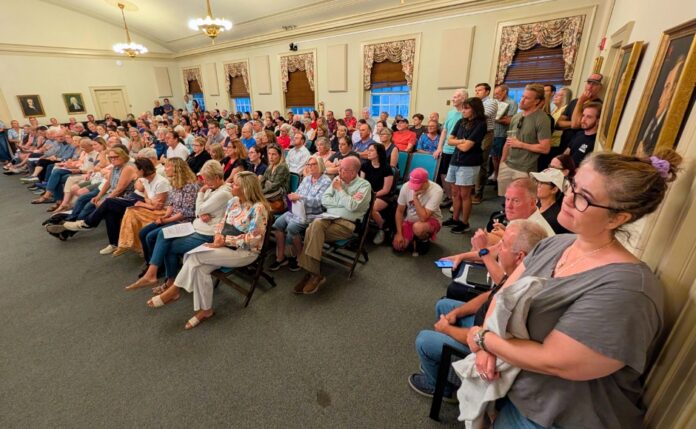Haddonfield is taking a community-driven approach to homelessness following the borough’s decision to table a controversial ordinance aimed at regulating the presence of unhoused individuals in public spaces. Rather than relying solely on punitive measures, local leaders are turning to faith-based organizations to provide direct support and case management for residents experiencing homelessness.
An interdenominational nonprofit has stepped forward with plans to coordinate services across Haddonfield’s churches, offering assistance such as access to shelter, food, healthcare, and connections to long-term housing programs. The initiative, supported financially by the borough, is designed to fill the gap left by the suspended “Peace and Good Order” ordinance, providing a model of collaborative, grassroots intervention that prioritizes compassion and practical assistance.
Municipal officials have emphasized that the success of this charitable outreach will guide future policy decisions. While the ordinance remains on hold, borough leaders have made clear that amendments or stricter measures could be reinstated if the church-led initiative fails to meet the community’s needs. For now, the emphasis is on leveraging existing community networks and resources to deliver tangible results for individuals struggling with housing insecurity.
Churches involved in the effort are mobilizing volunteers and coordinating case management services to ensure that support is consistent and accessible. Programs include temporary shelter placements, food distribution, job search assistance, and mental health referrals, reflecting an understanding that homelessness is a complex challenge requiring multifaceted solutions. Local leaders see this as an opportunity to create a replicable framework for community engagement, where religious institutions and municipal resources work in tandem to address social issues.
Residents have expressed cautious optimism about the approach, noting that it combines immediate relief with long-term planning. Advocates argue that engaging established community organizations ensures accountability, personal connection, and a deeper understanding of local needs, all of which are crucial for addressing homelessness effectively.
The borough’s decision to rely on churches also underscores a broader trend in New Jersey, where municipalities are exploring partnerships with nonprofits and faith-based groups to deliver social services. By channeling funding into coordinated outreach efforts, Haddonfield aims to prevent individuals from being criminalized for circumstances often beyond their control, while still maintaining the borough’s commitment to public safety and community order.
This initiative aligns with statewide efforts to rethink homelessness strategies, emphasizing humane solutions and sustainable support systems over punitive policies. For those interested in following developments in Haddonfield and learning more about compassionate, community-focused approaches to social challenges, visit The Humane State for ongoing coverage and insight into similar programs across New Jersey.
As the program rolls out, borough leaders, nonprofit coordinators, and church volunteers will monitor its effectiveness closely, using outcomes to inform potential future amendments to local regulations. By placing case management, outreach, and community collaboration at the forefront, Haddonfield hopes to create a model that balances care, accountability, and civic responsibility in addressing homelessness.












